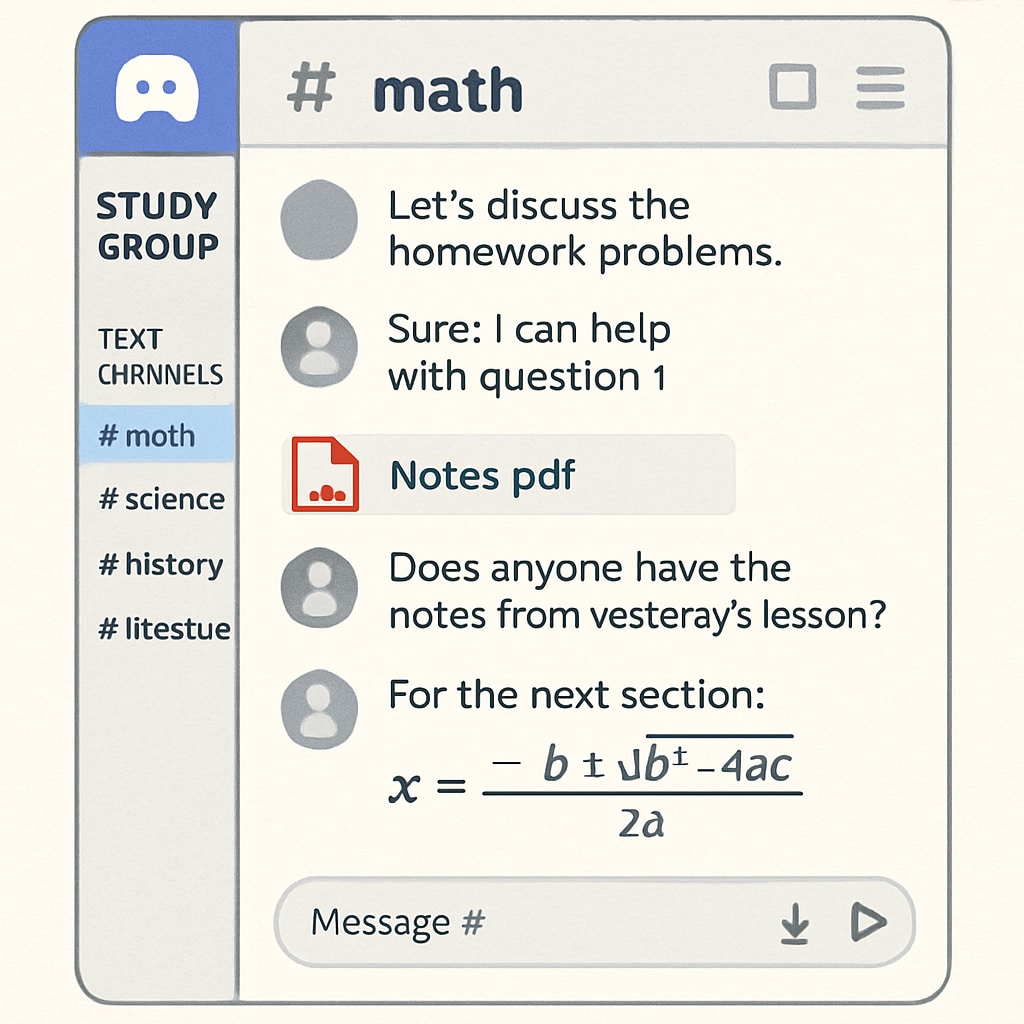In today’s rapidly evolving educational landscape, the importance of collaborative learning cannot be overstated. Whether in K12 classrooms or higher education institutions like Houston University, study groups and digital platforms such as Discord have emerged as essential tools for fostering engagement and shared knowledge. By leveraging these resources, educators and students alike can create efficient learning communities that promote both academic success and interpersonal growth.
Why Learning Communities Are Vital for K12 Education
Learning communities are structured groups where students work together to achieve shared academic goals. In K12 education, these communities often take the form of study groups or classroom collaborations, which not only enhance learning outcomes but also teach critical social and organizational skills. For example, study groups encourage students to discuss concepts, address challenges collectively, and reinforce each other’s understanding.
Houston University has set a strong precedent in utilizing collaborative learning communities. By integrating tools like Discord—a popular communication platform that allows group chats and resource sharing—the university has facilitated dynamic student interactions. K12 educators can adapt these strategies to their classrooms by forming structured groups and using digital tools to maintain communication.

Using Digital Platforms Like Discord for Collaboration
Discord has become a favored digital platform among students due to its user-friendly interface and versatile features. Originally designed for gaming communities, it has evolved into a powerful educational tool. Teachers and students can use Discord to create private channels for study groups, share resources, and host real-time discussions. This is particularly helpful for K12 students who may struggle with traditional learning methods or need additional support outside of school hours.
For example, educators can set up dedicated channels for specific subjects, enabling students to access materials, ask questions, and collaborate on projects from anywhere. Additionally, Discord’s voice and video call capabilities allow for virtual tutoring sessions or group meetings, making it a valuable resource for hybrid or remote learning environments.

Best Practices for Study Groups in K12 and Beyond
To ensure the effectiveness of study groups in K12 education, certain practices should be followed:
- Define goals: Clearly outline the objectives of the study group, such as preparing for exams or completing assignments collaboratively.
- Assign roles: Designate roles within the group, such as note-taker, discussion leader, or timekeeper, to maintain structure.
- Encourage inclusivity: Foster an environment where every student feels comfortable contributing their ideas and asking questions.
- Leverage technology: Use digital platforms like Discord to enhance communication and share resources efficiently.
- Regular reviews: Periodically evaluate the group’s progress and adjust strategies as needed.
These practices, combined with innovative tools like Discord, can help K12 students emulate the success of higher education institutions like Houston University, where group collaboration leads to both academic and personal development.
Challenges and Solutions in Building Learning Communities
While collaboration offers numerous benefits, it’s important to acknowledge potential challenges. For instance, some students may feel hesitant to participate in group discussions due to social anxiety or fear of judgment. Others might struggle with scheduling conflicts or unequal contributions from group members.
To address these issues, educators can implement solutions such as:
- Small group sizes: Limit groups to 4–6 members to ensure a more inclusive atmosphere.
- Flexible scheduling: Use digital tools to coordinate meetings that accommodate everyone’s availability.
- Conflict resolution training: Teach students to address disagreements constructively and support one another.
- Tracking contributions: Use shared documents or logs to monitor individual participation and ensure accountability.
By proactively addressing these challenges, educators can create robust learning communities that benefit all participants.
In conclusion, study groups and digital platforms like Discord offer transformative opportunities for K12 education. By learning from the collaborative strategies employed at Houston University, educators can foster dynamic, efficient learning communities that empower students to succeed both academically and socially. As a result, these methods not only prepare students for higher education but also equip them with lifelong skills in teamwork and communication.
Readability guidance: Break content into short, actionable paragraphs. Utilize lists for clarity and ensure consistent use of transitional phrases. Balance academic tone with accessible language for broader readability.


